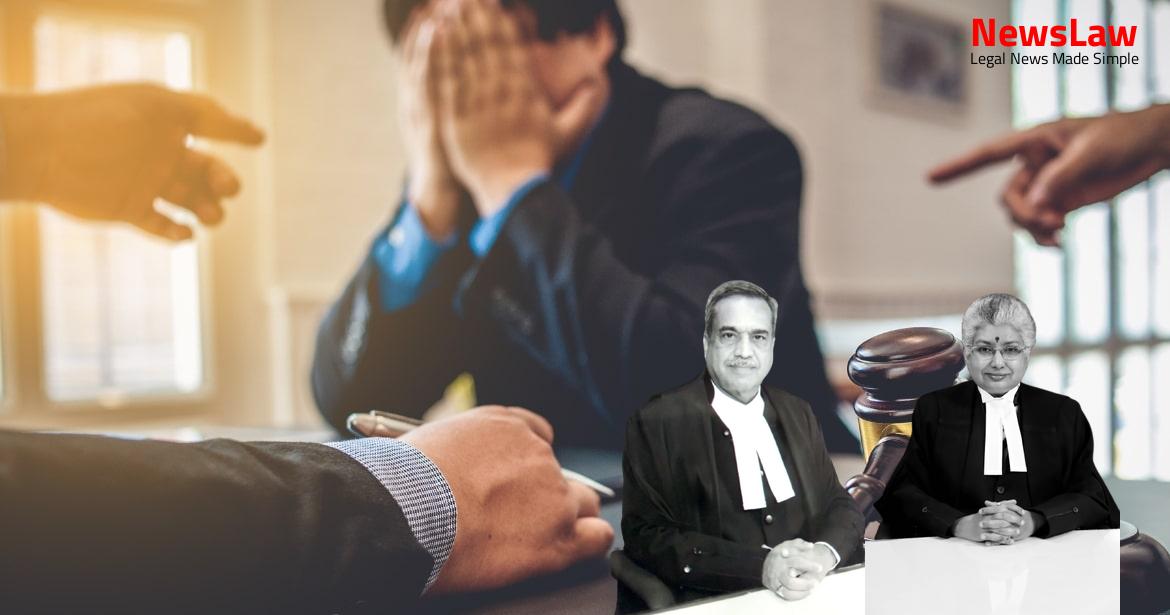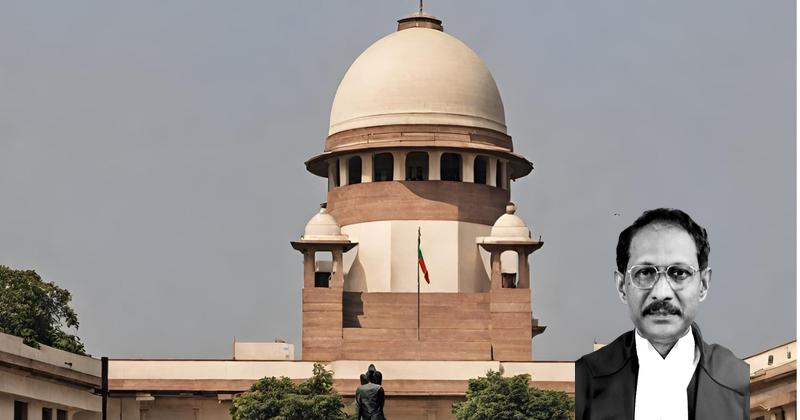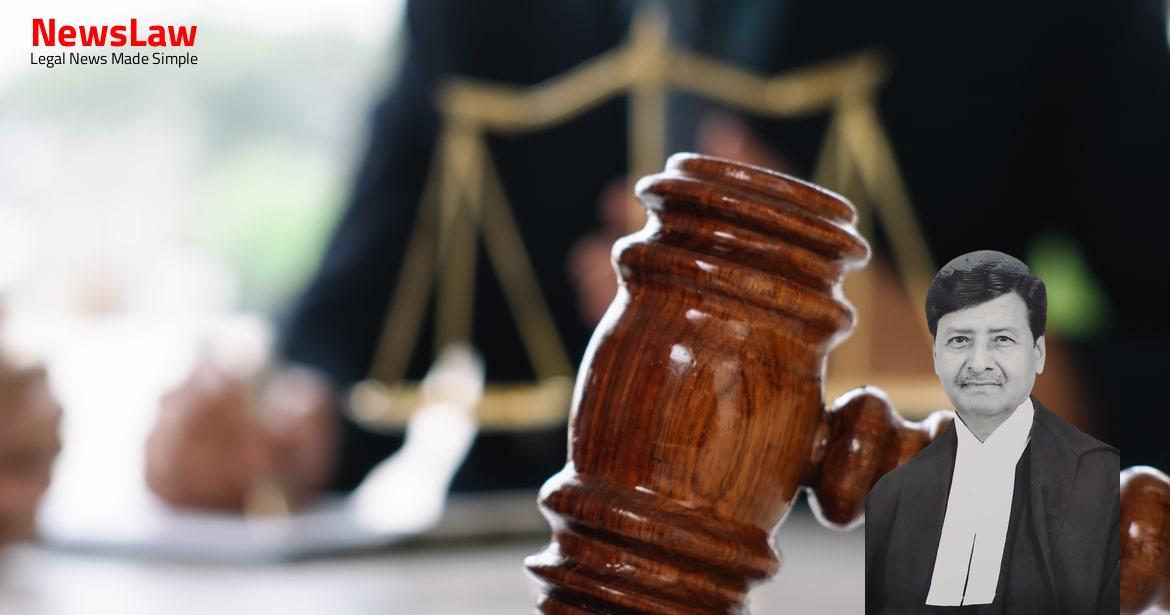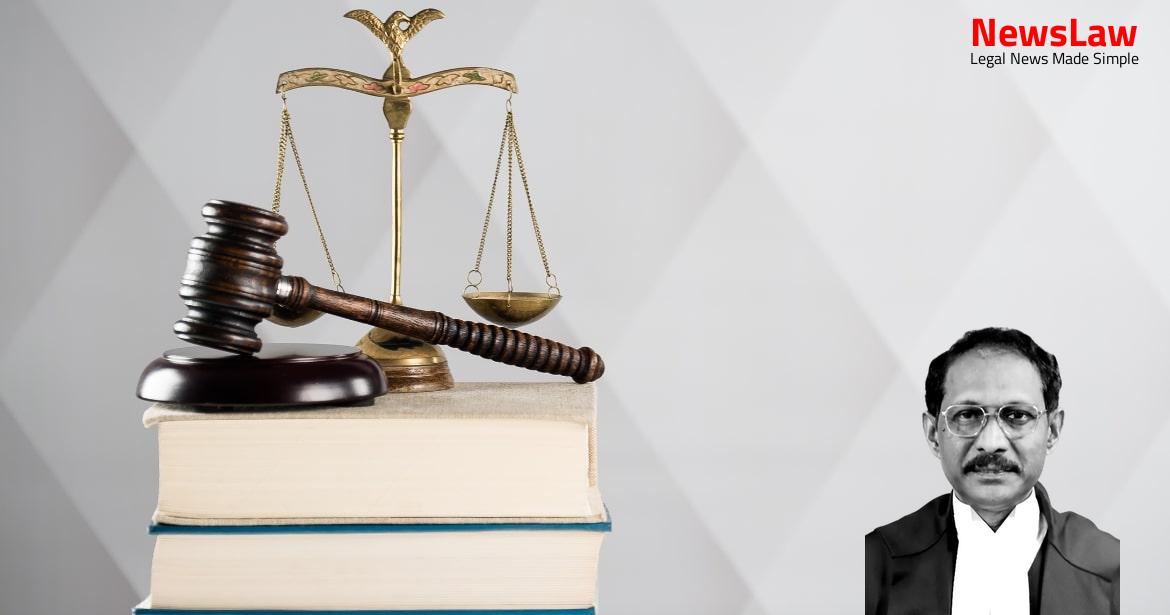The court’s recent ruling in a case involving back wages and burden of proof sheds light on crucial legal principles. The analysis by the court delves into the requirements for proving unemployment during a specific period and the applicability of the ‘no work no pay’ principle. This summary explores the court’s emphasis on the burden of proof lying on the employee and the absence of entitled back wages for a certain period. Stay tuned to delve deeper into the legal intricacies of the case.
Facts
- Management appealed against the reinstatement order with back wages but without interest.
- Single Judge directed reinstatement but denied back wages.
- Management appealed to Division Bench, leading to the current Special Leave Petition.
- High Court confirmed Single Judge’s order of back wages with 9% interest from 23.08.2002 to 30.04.2007.
- Another similar case with back wages and interest confirmed by High Court led to the present Special Leave Petition.
- Single Judge’s order for back wages from 23.08.2002 to 30.04.2007 was appealed by Management to Division Bench.
- The appeal was dismissed, resulting in reinstatement on 16.12.2010 and another appeal against back wages.
- Respondent (writ petitioner) was dismissed from service on 30.01.1996.
- He challenged the termination and submitted representations for back wages from 23.08.2002 to 30.04.2007.
- Writ petition filed before High Court seeking back wages from date of reinstatement order to actual reinstatement date.
- Claimed back wages only for the period of unemployment from 23.08.2002 to 30.04.2007.
- Due to stay in management’s appeal, petitioner remained out of employment from 23.08.2002 to 30.04.2007.
- Petitioner was in different employment from 01.05.2007 to 20.01.2011.
Also Read: Ruling on Circumstantial Evidence in Murder Case
Issue
- Employee entitled to back wages during the period of unemployment due to stay order granted by the appellate court
- Management must prove or produce material on record showing employee was gainfully employed during the said period
Also Read: Challenging Legal Presumptions in Negotiable Instrument Cases
Arguments
- The writ petitioner has not provided any documentary evidence to prove that he was not gainfully employed during the period in question.
- As per established legal principles, the burden of proof lies on the employee to demonstrate that he was not employed during a certain period.
- Cases such as State of U.P. v. Atal Behari Shastri, Kendriya Vidyalaya Sangathan v. S.C. Sharma, and others have reaffirmed this principle.
- The principle of “no work no pay” may also be applicable in this case.
- The writ petitioner shall not be entitled to any back wages for the period from 23.08.2002 to 30.04.2007.
- During this period, the petitioner did not work and was out of employment.
Also Read: Legal Analysis Critique in High Court’s Quashing Order
Analysis
- The writ petitioner claimed back wages only for a specific period, stating he was employed elsewhere for another period.
- The writ petitioner asserted he was not gainfully employed for a certain period, shifting the burden of proof to the employer.
- The back wages were awarded for the period ordered for reinstatement by the Single Judge.
- The writ petitioner was entitled to back wages for the duration he was out of employment due to the stay order in the management’s appeal.
- The onus shifted to the employer to prove the employee was gainfully employed during the period claimed for back wages.
- The High Court’s decision to award back wages with interest was upheld as the writ petitioner was out of employment during a specific period.
- Upon dismissal of the management’s appeal and vacation of the stay, the termination order was set aside, and the reinstatement order was confirmed.
- The writ petitioner needed to assert under oath that he was not employed, engaged in gainful business, and had no income.
- In the case of J.K. Synthetics v. K.P. Agrawal (supra), the court observed that an employee cannot be asked to prove the negative.
- The principle of ‘no work no pay’ does not apply in this situation.
- The employee cannot be denied back wages for reasons beyond his control.
- The ‘no work no pay’ principle is not applicable as the employee remained unemployed due to a stay order obtained by the management.
- The management’s appeal led to the stay against reinstatement, causing the employee’s unemployment.
- The appeal was eventually dismissed, and the stay was vacated in 2010.
Decision
- The Petitioners – management must pay the amount due to the Respondent – Original Writ Petitioner within 8 weeks.
- The court found no reason to interfere with the previous judgments by the Division Bench and the learned Single Judge.
- Back wages are to be paid for the period from 23.08.2002 to 30.04.2007 with interest at the rate of 9% per annum.
- The special leave petition has been dismissed.
Case Title: SALIM ALI CENTRE FOR ORNITHOLOGY AND NATURAL HISTORY Vs. MATHEW K. SEBASTIAN (2022 INSC 387)
Case Number: SLP(C) No.-005218 / 2022



